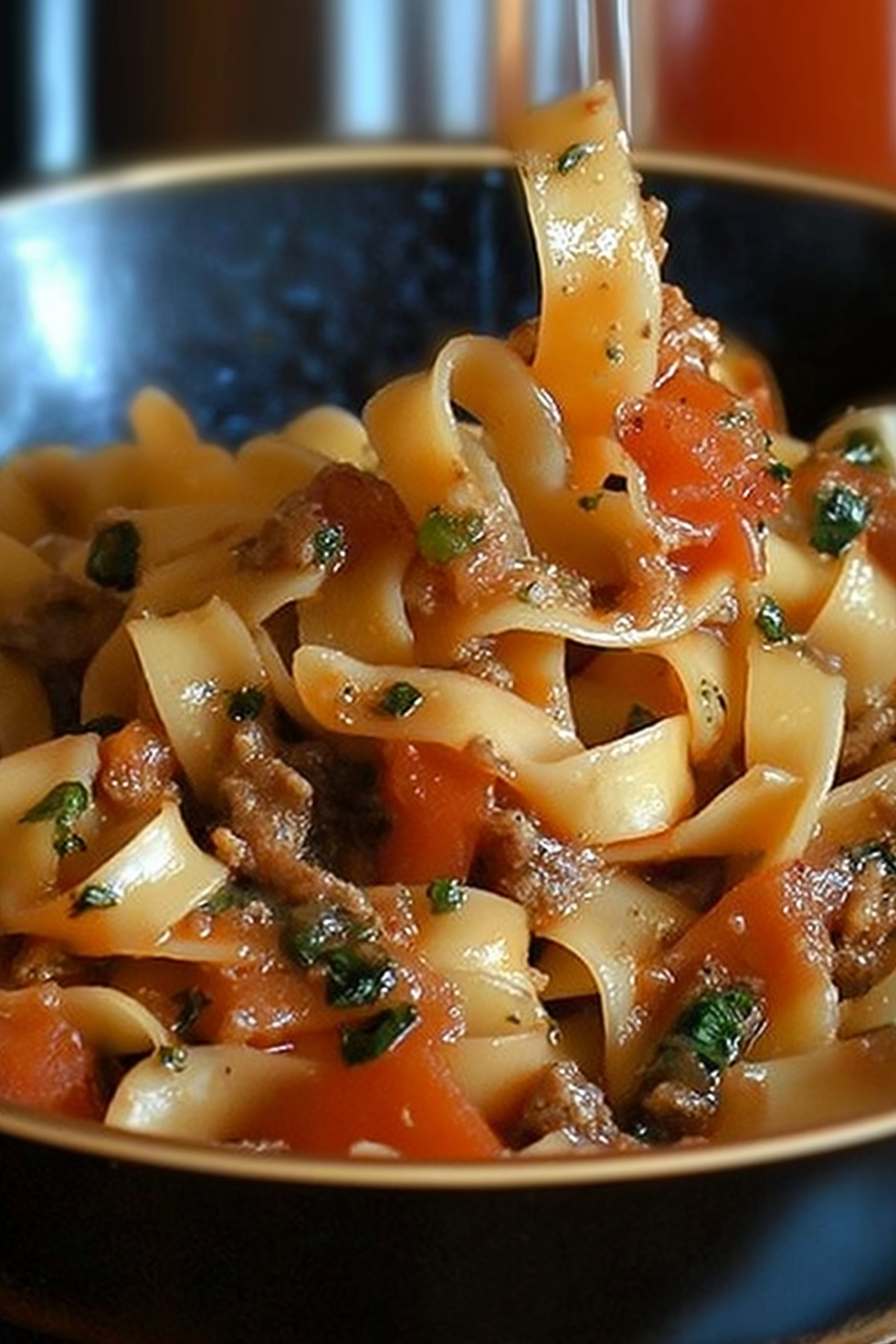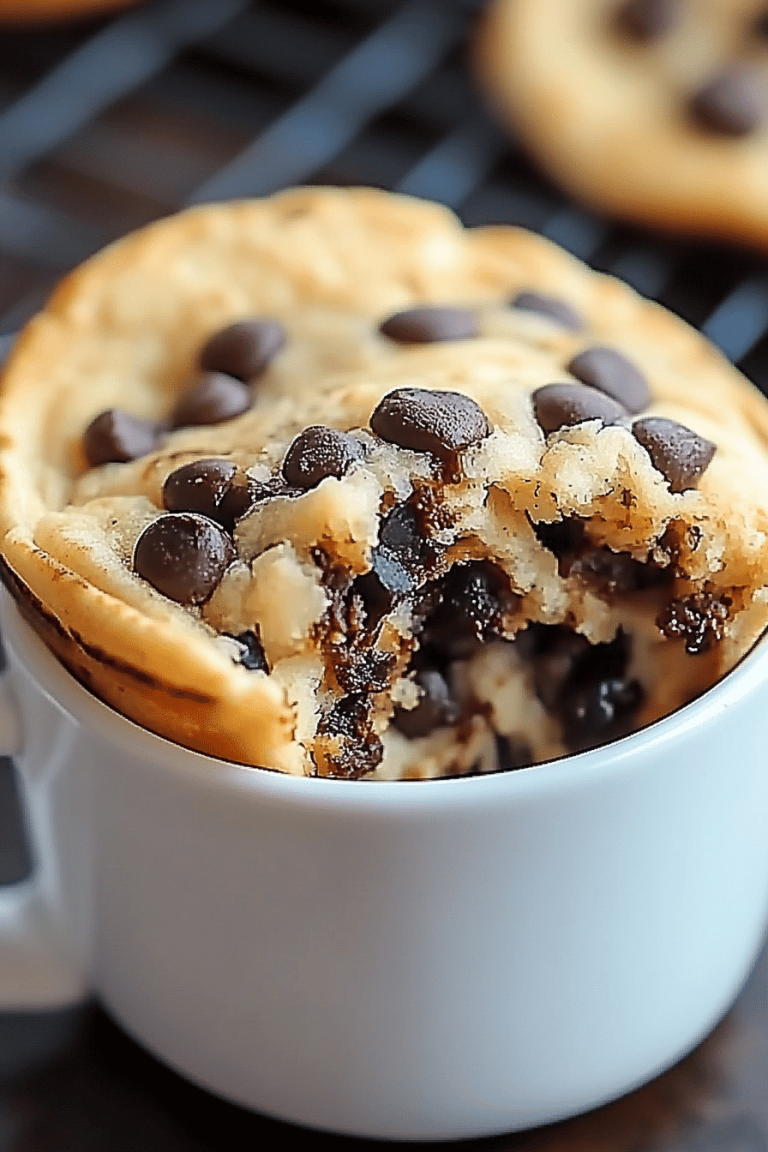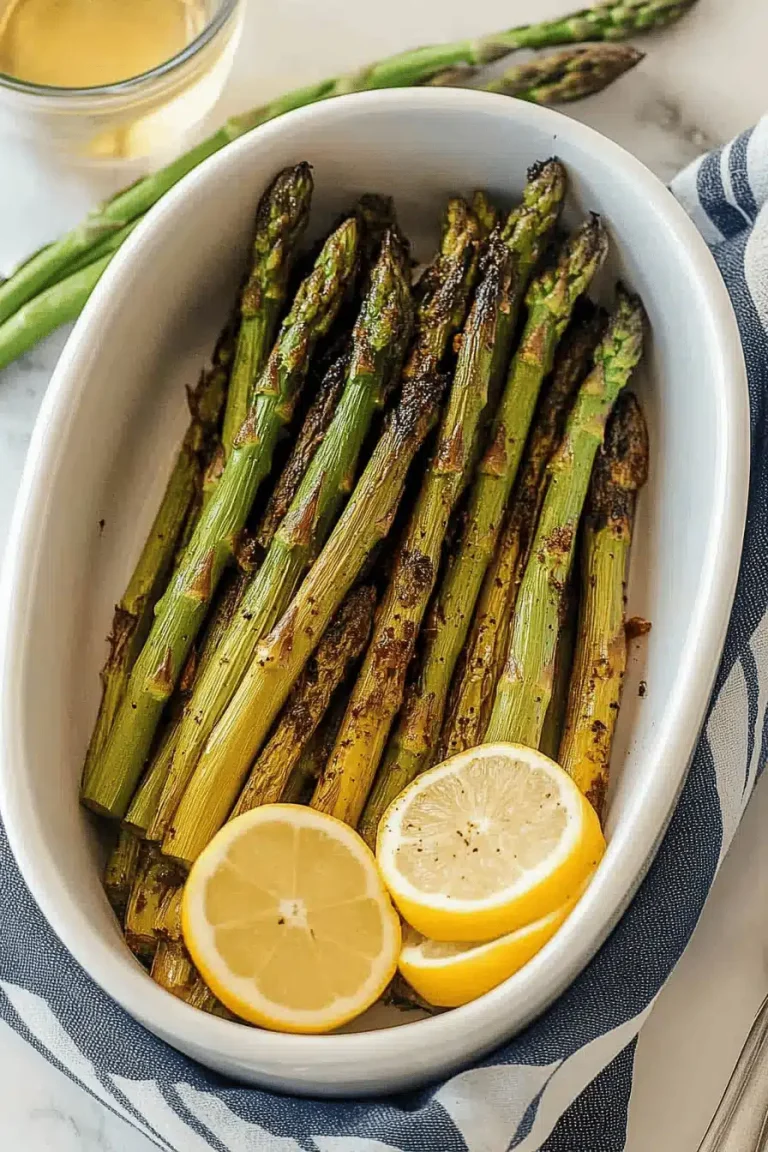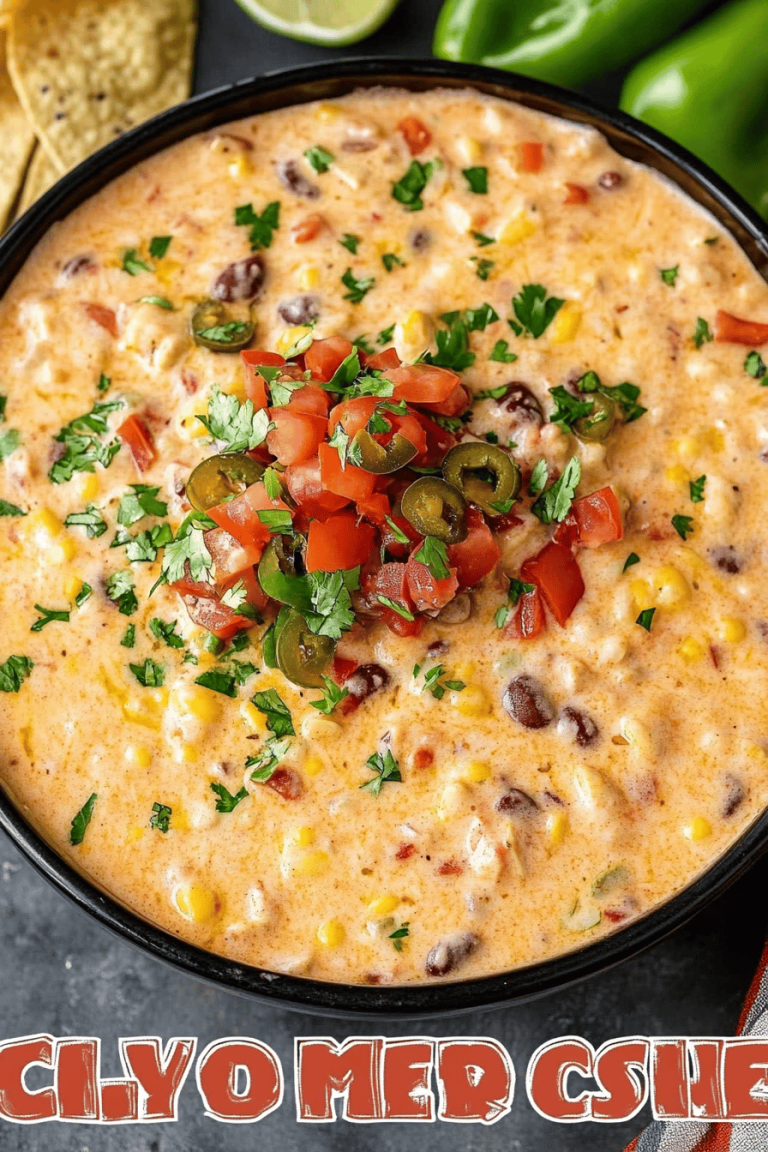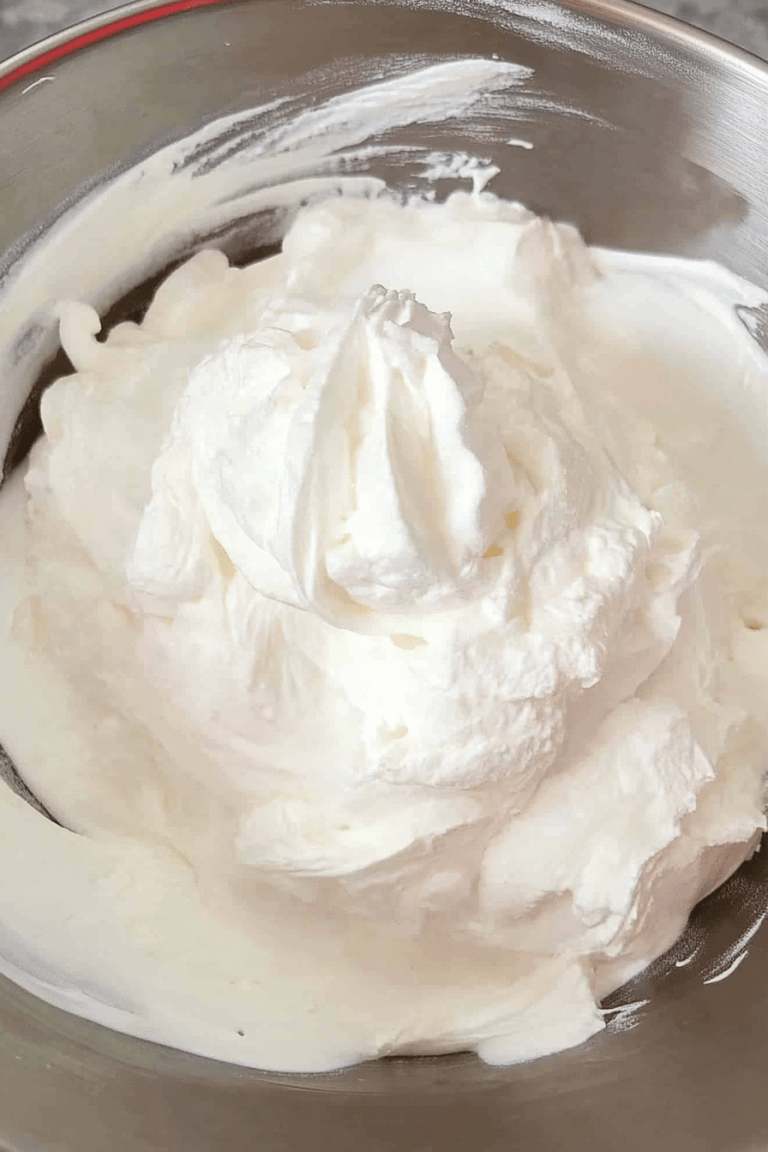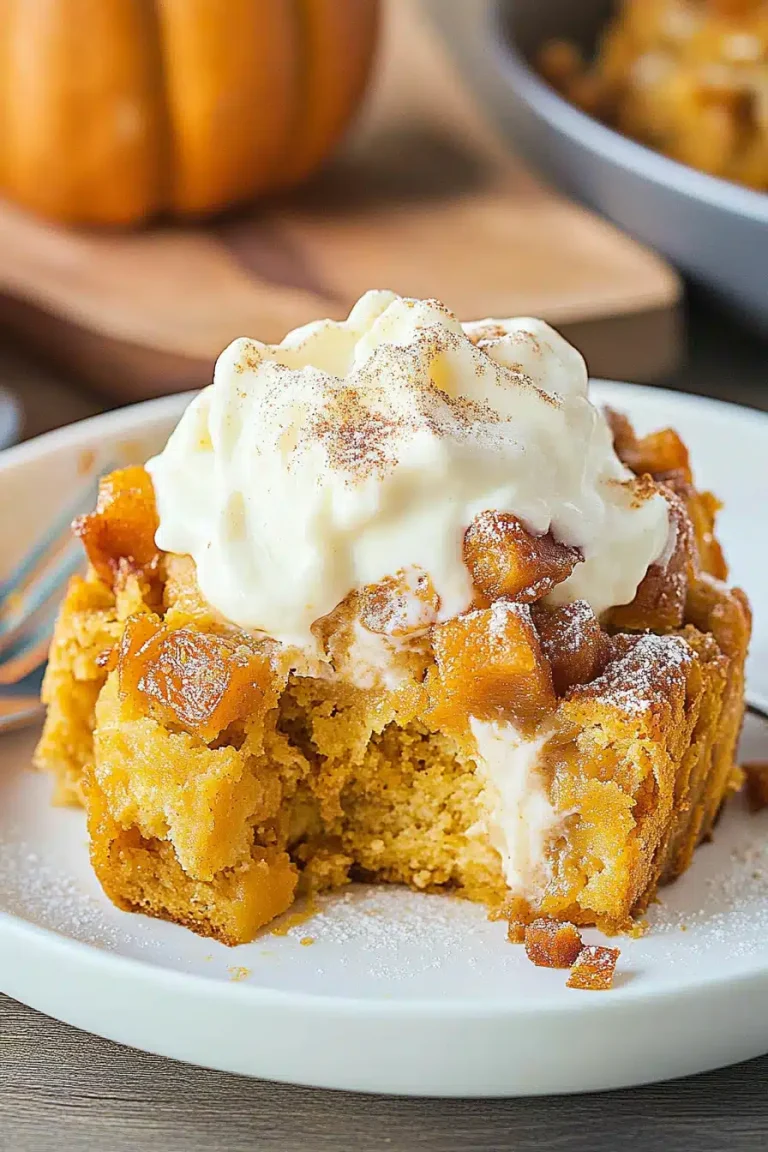You know those recipes that just stick with you? The ones you find yourself making again and again, not just because they’re delicious, but because they feel like a warm hug on a plate? For me, that’s absolutely my Drunken Noodles. There’s something so incredibly satisfying about the balance of savory, sweet, and just a hint of spice that makes my tastebuds sing. I remember the first time I tried making a version of this years ago, and it was a bit of a disaster, honestly! But I learned from my mistakes, tweaked it here and there, and now, it’s a lifesaver on busy weeknights and always a huge hit when we have friends over. It’s kind of like a more sophisticated, way more flavorful take on something like a hearty Beef Stew, but ready in a fraction of the time. The aroma alone as it simmers is enough to make everyone in the house flock to the kitchen, asking “What’s that amazing smell?” If you’ve ever found yourself craving something deeply satisfying and bursting with authentic flavor without spending hours in the kitchen, then you are going to adore this Drunken Noodles recipe. It’s truly a game-changer.
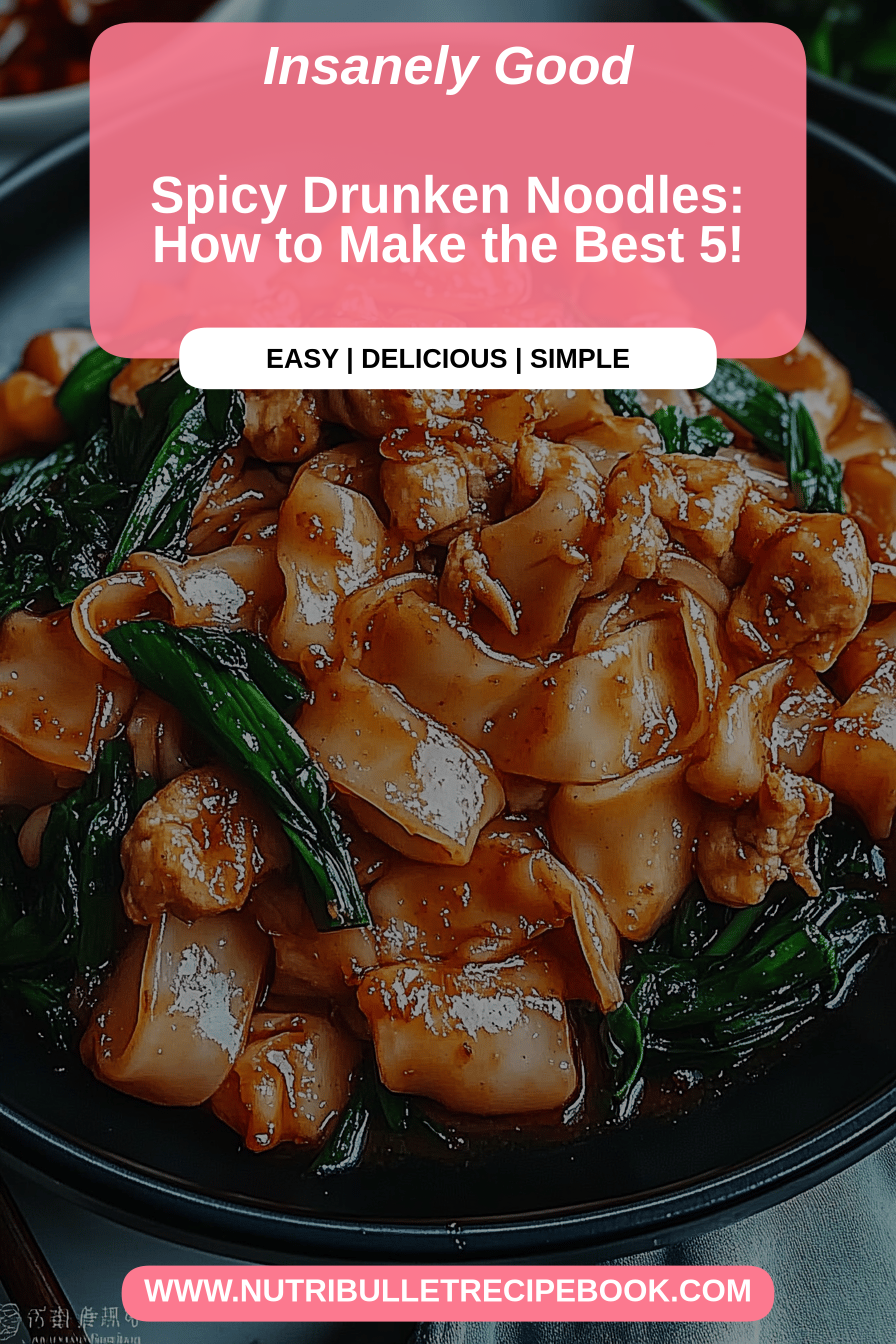
What are drunken noodles?
So, what exactly are these magical Drunken Noodles? The name itself sounds intriguing, right? You might picture someone a little tipsy in the kitchen, flinging ingredients around. While I can’t guarantee you won’t feel a little celebratory after making them, the dish itself is actually a staple in Thai cuisine, known more formally as Pad Kee Mao. Think of it as a super flavorful, stir-fried noodle dish that’s typically made with wide, flat rice noodles, a savory sauce, your choice of protein, and plenty of fresh vegetables. The “drunken” part? Well, legend has it that this dish was traditionally cooked with rice wine or beer, or was the perfect accompaniment for a night of drinking – hence, “drunken.” It’s got this amazing depth of flavor that comes from a really well-balanced sauce, and it’s incredibly adaptable. It’s not overly complicated, but the combination of ingredients creates a flavor profile that’s just out of this world. It’s savory, slightly sweet, a little tangy, and usually has a nice kick of heat that you can totally control. It’s the kind of dish that feels both comforting and exciting all at once.
Why you’ll love this recipe?
Honestly, I could rave about this Drunken Noodles recipe all day, but here’s why I think it’s going to become a favorite in your kitchen too. First off, the flavor. Oh my goodness, the flavor! It’s this incredible symphony of savory notes from the soy sauce and fish sauce, a touch of sweetness from the sugar, a tang from the vinegar, and that wonderful aroma from the fresh basil and garlic. It’s just so complex and satisfying, hitting all the right spots without being overwhelming. What I love most about this is how surprisingly simple it is to bring together, especially considering how restaurant-quality it tastes. You can have this on the table in under 30 minutes, which is a lifesaver on those crazy busy evenings when the last thing you want to do is spend hours cooking. And let’s talk about cost-efficiency! Most of the ingredients are pantry staples or easily found at any grocery store, and you can use whatever protein you have on hand – chicken, shrimp, beef, or even just load it up with extra veggies. It’s super versatile, too. You can adjust the spice level to your liking, swap out vegetables based on what’s in season or what you have in your fridge, and even experiment with different kinds of noodles if you’re feeling adventurous. It’s a dish that truly works for any mood or occasion, whether you’re looking for a quick weeknight dinner or something a little special to impress guests. It’s a far cry from the bland, quick meals I used to rely on!
How do I make drunken noodles?
Quick Overview
Making these Drunken Noodles is really about having your ingredients prepped and ready to go, because the stir-frying part happens super fast! We’re talking about a simple process: cook your protein, sauté your aromatics, toss in your noodles and veggies, and then coat everything in a vibrant, flavorful sauce. The key is high heat and quick movements to get that perfect wok-kissed char on everything. Don’t be intimidated by the stir-fry technique; it’s more about enthusiasm and speed than anything else. This recipe focuses on building layers of flavor quickly, ensuring that every bite is packed with deliciousness. It’s designed to be straightforward, even for novice cooks, so you can achieve incredible results without any fuss.
Ingredients
For the main noodle & protein: For the main noodle & protein: For the main noodle & protein: For
– 1 pound wide, flat rice noodles (look for the fresh ones if you can find them at an Asian market, otherwise dried are perfectly fine!)
– 1 pound protein of your choice (thinly sliced chicken breast, flank steak, shrimp, or firm tofu)
– 2 tablespoons vegetable oil (or another high-heat oil like peanut or canola)
– 3-4 cloves garlic, minced (don’t be shy here!)
– 1-2 Thai bird’s eye chilies, thinly sliced (or more, if you like it hot!)
– 1 cup mixed vegetables, chopped into bite-sized pieces (bell peppers, onions, broccoli florets, snap peas – whatever you love!)
– 1 cup fresh Thai basil leaves (this is non-negotiable for that authentic flavor!)
– Optional: 1/4 cup cashews or peanuts for a little crunch
For the Sauce:
– 3 tablespoons soy sauce (use tamari for gluten-free)
– 2 tablespoons oyster sauce (omit for vegetarian/vegan, use vegetarian mushroom stir-fry sauce)
– 1 tablespoon dark soy sauce (for color and depth)
– 1 tablespoon fish sauce (adds that essential umami punch)
– 1 tablespoon brown sugar (or maple syrup for a refined sugar-free option)
– 1 teaspoon rice vinegar
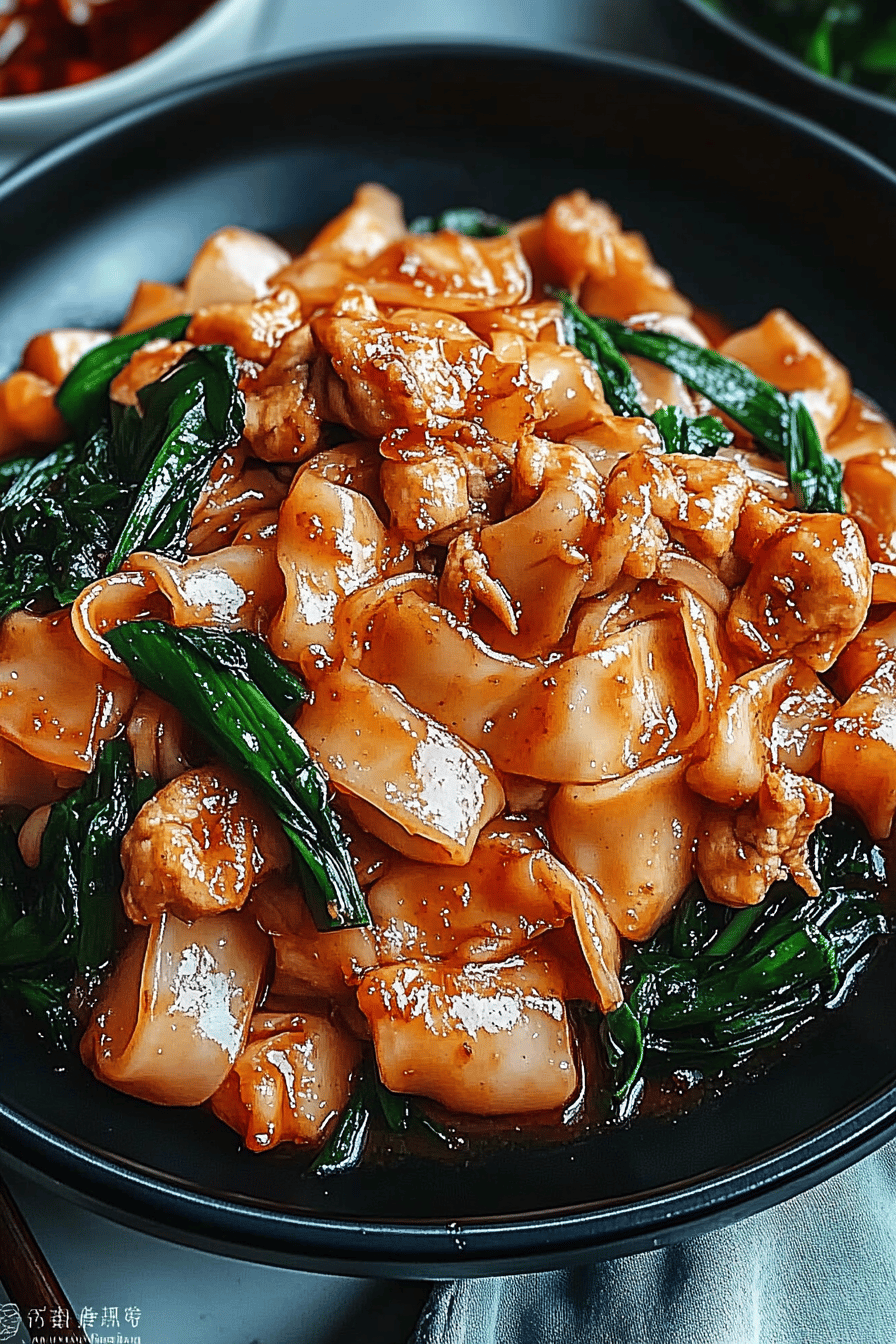
Step-by-Step Instructions
Step 1: Preheat & Prep Pan
This is crucial for stir-frying! Get your wok or a large, heavy-bottomed skillet screaming hot over high heat. If you’re using dried noodles, get them started according to package directions, usually soaking them in hot water until pliable, then drain them really well. Fresh noodles just need a quick rinse under hot water to loosen them up. Have all your chopped veggies, minced garlic, sliced chilies, and protein ready to go right next to the stove. Stir-frying is fast, so you won’t have time to chop once you start.
Step 2: Mix Dry Ingredients
In a small bowl, whisk together the soy sauce, oyster sauce, dark soy sauce, fish sauce, brown sugar, and rice vinegar. This is your flavor powerhouse! Make sure the sugar is dissolved. Taste it – does it need a little more sweetness? A touch more saltiness? Adjust it now to your liking. This sauce is what brings everything together, so getting it right is key.
Step 3: Mix Wet Ingredients
This step actually ties into Step 2, where we’re mixing all our sauce components together in one bowl. The “wet” ingredients here are those that will form the base of our delicious sauce – the soy sauce, oyster sauce, etc. No separate mixing needed beyond combining them into one cohesive sauce mixture.
Step 4: Combine
This step refers to combining the cooked noodles with the sauce and other ingredients in the wok. Once everything is stir-fried and the sauce is added, it all comes together in a beautiful marriage of flavors. The noodles will soak up all that goodness. The key here is to keep things moving so the noodles don’t clump together and the sauce evenly coats everything.
Step 5: Prepare Filling
In this recipe, the “filling” is essentially the combination of your protein and vegetables that you’ll stir-fry. If you’re using chicken, beef, or tofu, you want to slice it thinly so it cooks quickly. For vegetables, aim for bite-sized pieces that will cook evenly. You can add them all at once or in stages depending on how quickly they cook. Bell peppers and onions usually go in before more delicate veggies like snap peas.
Step 6: Layer & Swirl
This refers to the process of adding ingredients to the hot wok in succession and stirring quickly. You’ll add your protein first, stir-fry until almost cooked, then add your aromatics (garlic, chilies), followed by your vegetables. Once the vegetables are starting to soften but are still crisp-tender, add your drained noodles and pour over the prepared sauce. Then, it’s all about tossing, tossing, tossing! You’ll see the noodles absorb the sauce and everything get beautifully coated. If you’re adding nuts, toss them in at the very end.
Step 7: Bake
This recipe is actually a stir-fry, not a baked dish, so there’s no baking involved! The high heat of the wok is what cooks everything quickly and gives it that signature stir-fried texture and flavor. You’re essentially “cooking” everything on the stovetop.
Step 8: Cool & Glaze
Once your Drunken Noodles are stir-fried and perfectly coated in sauce, they’re pretty much ready to go. There’s no cooling period needed before serving. The “glaze” is actually the sauce itself that coats the noodles beautifully. The goal is for the noodles to be glossy and infused with all those incredible flavors, not dry or swimming in excess liquid.
Step 9: Slice & Serve
Serve your Drunken Noodles immediately while they’re hot and fragrant! Garnish generously with fresh Thai basil leaves. If you have some extra sliced chilies for those who like it extra spicy, or a sprinkle of chopped peanuts, that’s great too. It’s best enjoyed piping hot right out of the wok for that ultimate freshness and flavor.
What to Serve It With
While Drunken Noodles are a meal in themselves, they pair beautifully with a few simple additions that really round out the experience. For a light and refreshing start, a simple cucumber salad with a rice vinegar dressing is fantastic. It cuts through the richness of the noodles perfectly. If you’re looking for something more substantial for a big family meal, some steamed or stir-fried green beans or bok choy are always a good idea. My kids, who are admittedly picky eaters sometimes, absolutely love when I serve this with some simple white rice on the side – they sometimes like to mix a little of the noodle sauce into their rice. For beverages, a crisp, cold Thai iced tea is the classic pairing, its sweetness a lovely contrast to the savory noodles. If you’re feeling a bit more adventurous, a light lager or a chilled sake works wonders too. I also find that a squeeze of fresh lime juice right before serving adds an extra pop of brightness that I adore. It really elevates the whole dish.
Top Tips for Perfecting Your Drunken Noodles
Over the years, I’ve picked up a few tricks that really make my Drunken Noodles shine, and I’m happy to share them with you! First, and this is a big one for stir-fries, is to have absolutely everything prepped and within arm’s reach before you even think about turning on the heat. Mise en place, as the fancy chefs call it! This means your protein is sliced, your garlic is minced, your chilies are sliced, your veggies are chopped, and your sauce is mixed. Once you start stir-frying, things move FAST. Speaking of speed, use the highest heat your stove can manage. This is what gives the noodles that slightly charred, delicious “wok hei” flavor. Don’t overcrowd the pan; cook your protein in batches if necessary. This ensures everything gets nicely seared rather than steamed. For the noodles, if you’re using dried ones, don’t overcook them during the initial soak. They’ll finish cooking in the wok. A good test is to pull them out when they’re still a little al dente – they should have a slight chew. And please, please, please use fresh Thai basil! It has a unique flavor that’s completely different from Italian basil and is absolutely essential for authentic Drunken Noodles. If you can’t find it, you can use regular basil, but it won’t be quite the same. When it comes to the sauce, don’t be afraid to taste and adjust. My preference for sweetness or saltiness might be different from yours, so consider this a guide and make it your own. And for the veggies, aim for crisp-tender – you don’t want mushy vegetables in your Drunken Noodles. My kids always used to complain about mushy carrots in dishes, so I learned to give them a quick blanch or sauté them first to ensure they have a bit of a bite.
Storing and Reheating Tips
I’ll be honest, Drunken Noodles are best eaten fresh off the stove, when everything is perfectly textured and the flavors are at their peak. However, life happens, and sometimes you have leftovers! They store pretty well in the refrigerator for about 2-3 days. Make sure they’re in an airtight container. When you’re ready to reheat, the best method is usually on the stovetop in a wok or skillet over medium-high heat. You might need to add a tablespoon or two of water or a splash of soy sauce to help loosen things up and bring back some moisture. Give it a good stir-fry until everything is heated through. Microwaving is also an option, but the noodles can sometimes get a bit sticky or dry out. If you do use the microwave, cover them and heat in short intervals, stirring in between. I generally avoid freezing Drunken Noodles, as the texture of the rice noodles can change quite a bit after thawing, becoming a bit mushy. If you absolutely must freeze them, make sure they are completely cooled and packed into a freezer-safe container, and try to eat them within a month for best quality. Reheating from frozen will require a bit more liquid and careful stovetop attention.
Frequently Asked Questions
Final Thoughts
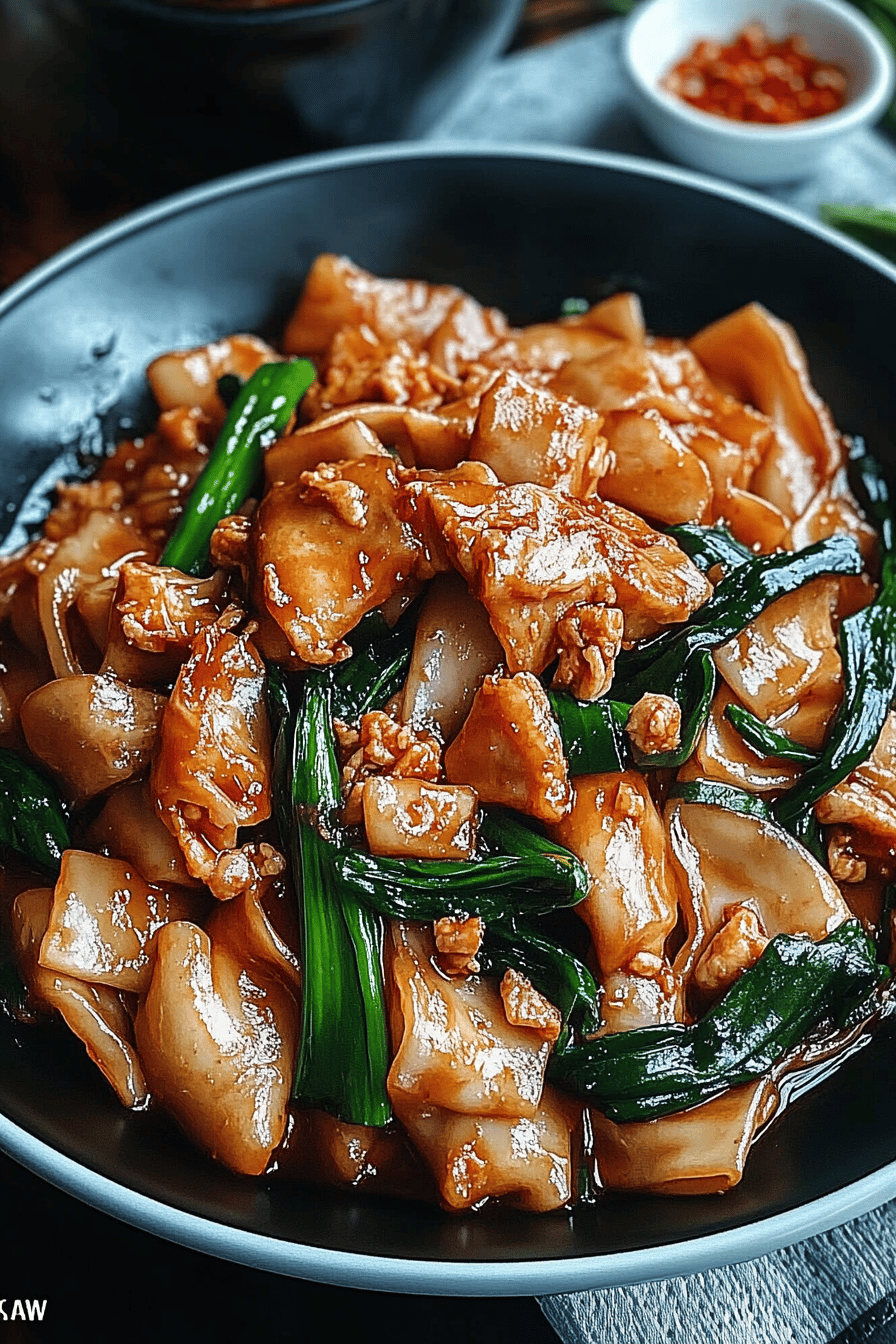
So there you have it – my ultimate Drunken Noodles recipe! It’s a dish that’s close to my heart, bringing together so many vibrant flavors and textures in one bowl. It’s proof that you don’t need hours in the kitchen to create something truly spectacular. Whether you’re a seasoned cook or just starting out, I genuinely believe this recipe will bring you tons of joy and deliciousness. It’s the kind of meal that makes you feel good from the inside out. If you give this a try, I would absolutely love to hear all about it! Drop a comment below and tell me how yours turned out, what protein you used, or any fun twists you added. And if you’re a fan of bold, comforting flavors like this, you might also enjoy my [Link to another relevant recipe, e.g., Spicy Peanut Noodles or Thai Green Curry]. Happy cooking, and I can’t wait to see your amazing Drunken Noodles creations!
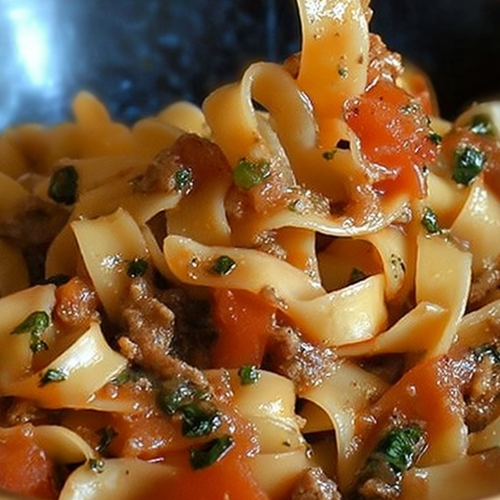
Drunken Noodles
Ingredients
Main Ingredients
- 8 ounces wide rice noodles
- 0.5 pound boneless, skinless chicken thighs thinly sliced
- 1 cup mixed bell peppers sliced
- 0.5 cup yellow onion sliced
- 4 cloves garlic minced
- 0.25 cup Thai basil leaves
- 2 tablespoons vegetable oil
Sauce Ingredients
- 3 tablespoons soy sauce
- 2 tablespoons oyster sauce
- 1 tablespoon dark soy sauce
- 1 tablespoon fish sauce
- 1 tablespoon brown sugar
- 1 teaspoon sriracha or more to taste
Instructions
Preparation Steps
- Cook rice noodles according to package directions. Drain and set aside.
- In a small bowl, whisk together soy sauce, oyster sauce, dark soy sauce, fish sauce, brown sugar, and sriracha. Set aside.
- Heat vegetable oil in a large skillet or wok over medium-high heat. Add chicken and stir-fry until cooked through, about 3-4 minutes.
- Add bell peppers, onion, and garlic to the skillet. Stir-fry for another 2-3 minutes until vegetables are tender-crisp.
- Add the cooked noodles and the prepared sauce to the skillet. Toss to combine and coat everything evenly.
- Stir in the Thai basil leaves. Cook for an additional minute until wilted.
- Serve immediately.

